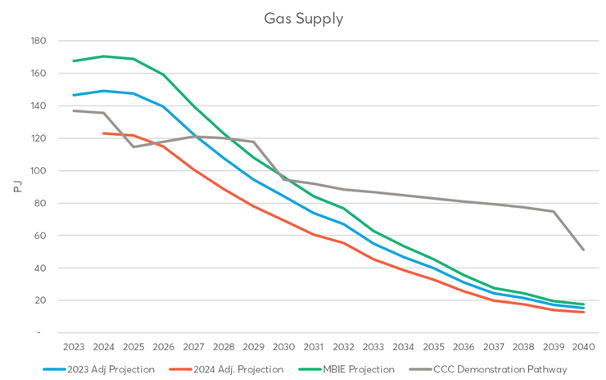Total Utilities Director, Chris Hargreaves, offers a concise overview of the challenges facing New Zealand’s gas market, as well as practical advice for business customers.
For the past two years, our industry has been sounding the alarm bells about an impending gas supply crisis. However, it’s only recently that the media has begun to pay attention.
Gas plays a crucial role in various sectors, particularly electricity generation and food production. Dwindling domestic gas production has increased the need to import coal for electricity generation. This has pushed industrial and commercial pricing skywards, leaving many of our clients asking how to remain competitive with energy input costs going through the roof.
Securing Contracted Supply – The Urgency of Early Action
The Gas Industry Company is recommending that industrial and commercial customers must take proactive measures.
We agree and strongly advise clients to consider renewing contracts early, due to the likelihood of constrained gas supplies throughout the decade.
By re-contracting early, businesses can mitigate the risk of facing tight supply and demand conditions, which will significantly inflate prices.
Concerns Amplified by Reports
A recent report from the Gas Industry Company paints a concerning picture of gas production levels falling below previous forecasts. With production output falling faster than expected, gas availability will become constrained faster than expected.

Insufficient gas is available to meet contracted demand, raising valid concerns about future reliability. The upward trend in gas prices over the past five years only adds to these worries.
Impact on Consumers
Many businesses across the primary and food production sectors rely on natural gas as part of their production processes.
Moving to alternative energy sources is extremely difficult as biomass supplies in NZ are very tight, and local electricity grid operators don’t necessarily have enough spare capacity to electrify industrial plants.
This is leading some customers to look at large LPG installations as LPG is an import commodity. However, this also has its limits, as port terminal storage for LPG being imported is in short supply.
Our clients are asking us, ‘why have political decisions been made to wind down our gas industry when there are no realistic alternatives?’
Policy Uncertainty Adds Complexity
Policy uncertainty, particularly with the ban on offshore oil and gas exploration implemented in 2018, adds another layer of complexity.
While efforts are underway to reverse this ban, concerns persist over potential policy reversals and their implications for energy investments and supply reliability.
The ban also saw industry expertise move offshore and planned investment curtailed. It’s unclear whether revising the ban will kickstart the industry back into life, as gas producers need long guarantees to ensure they recoup exploration and drilling costs.
Heed Warnings & Weather the Storm
In the face of mounting challenges and uncertainties, the imperative for action cannot be overstated. It’s not merely about addressing immediate concerns but also about shaping a sustainable energy landscape for the future.
By heeding the insights provided and implementing proactive measures without delay, businesses can not only weather the storm but also emerge stronger and more resilient in the evolving energy market.
- For personalised advice and insights on managing your utilities efficiently and effectively, Contact Total Utilities today.
- Listen to Energy Minister, Simeon Brown, talking to Mike Hoskin on NewstalkZB about how low gas production is threatening our energy sector.
